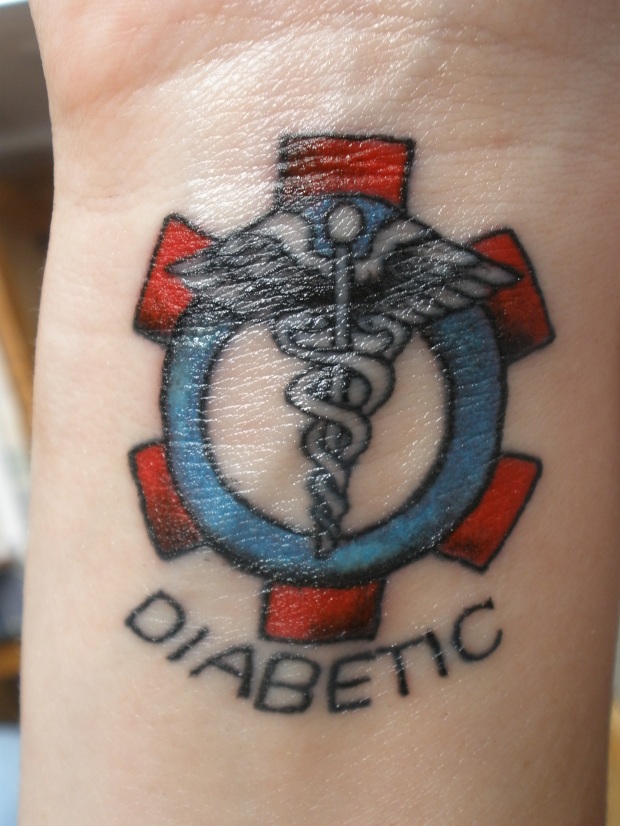The past couple weeks have been hard. Especially diabetically. I have been in the diabetes burnout funk. As any PWD can attest, when things are difficult diabetically, everything becomes more of a challenge. But I’m working through it, and this post is not going to be a gripe session. If griping got us anywhere, we’d have a cure for diabetes by now.
Diabetes control is a total moving target, and mine certainly has been lately. Predominantly, low BG’s have moved in and resulted in all the low BG fun: Shakes, sweating profusely, ravenous hunger, lack of sleep, confusion, blank outs, finding myself talking nonsense without the ability to shut up. Well, that last one really isn’t so different from a normal day, but still. I haven’t eaten glucose tabs or gel in years, but from the amount of them I’ve eaten the last couple weeks, I’m starting to think I should invest in Reli-On.
Then there are the high BG’s. The feeling like my blood has been replaced with molasses, nauseousness, and lethargic to the point that I don’t want to do squat. Thankfully, my high BG’s have a source, and are not a regular occurrence. I know it’s from eating things that aren’t smart healthy predictable. One night this past weekend, for example, I was out and got the stupid idea that I wanted a daiquiri to drink. The unimaginable and incalculable amount of sugar in it skyrocketed my BG through the roof, resulting in a semi-calculated rage bolus to get it back in range, and totally killing the point of drinking it in the first place.
I think all people, not just diabetics, want to be able to do what they want without having to analyze the decision to death. If I want pizza (which is unfortunately one of my favorite foods), I don’t want to have to count carbs so adamantly that I can’t enjoy the experience. However, to be able to enjoy other experiences, I do have to carefully count those carbs. It’s a vicious circle, and I know that choosing to be complacent in my diabetes management now would absolutely result in longer term complications down the road. We’ve all heard these lectures ad nauseum.
Not to get pleasure from someone else’s pain, but I’m not alone in this struggle, and that helps. Kerri (@sixuntilme) writes about similar diabetes challenges from her perspective of being a Mom. Sarah (@Sarah_IGTS) writes in her post “Holding On” about how we have to remember the big picture to keep us from wanting to just stop caring so much. Kelly (@diabetesalic) writes about seasonal high BG’s and the challenge to keep things in range.
We are all challenged from time to time, and all the time, with diabetes, regardless of what type we are. But as I said earlier, this post is not a gripe session. I’m reminded when I finally open up enough of just how much support is out there when a day, a few days, or even a few weeks do not go my way. We have people close to us who won’t let us not love ourselves because the amount of love that they have for us. We have the motley crew that is the DOC. We also have DSMA, where we see that there are others who are also having both awesome and awful days just like us, further demonstrating that we are never alone in this struggle.
That is something I can lean on and am thankful for. None of us has to go through these challenges alone.
I also find that laughter helps. I love to make people laugh. And as Bill Cosby said, “Through humor, you can soften some of the worst blows that life delivers. And once you find laughter, no matter how painful your situation might be, you can survive it.“








